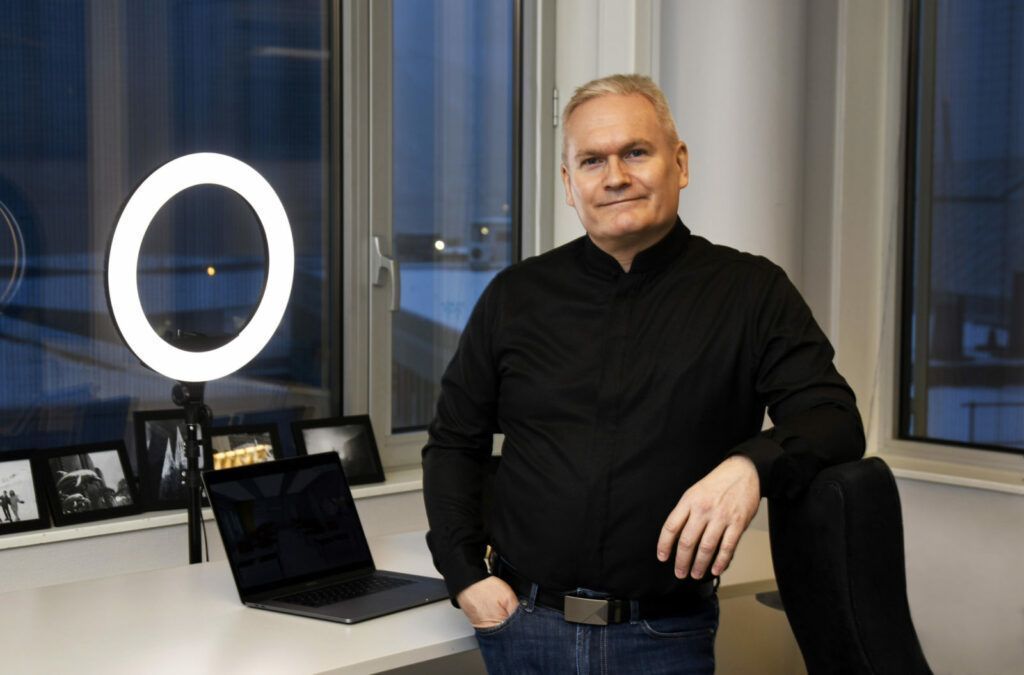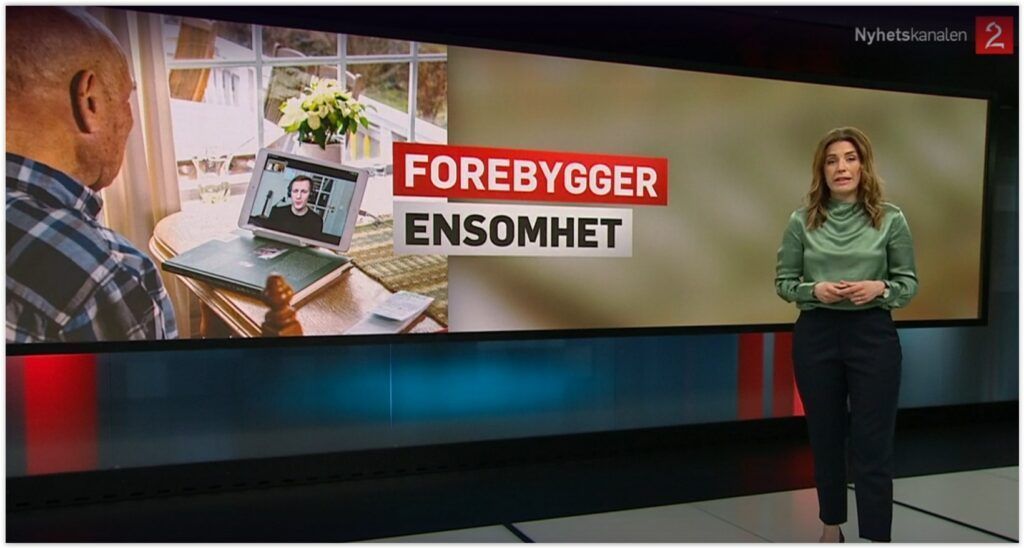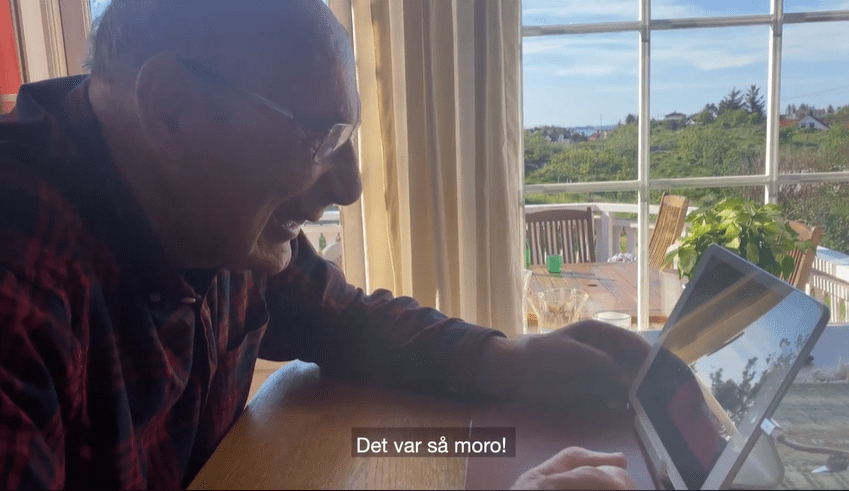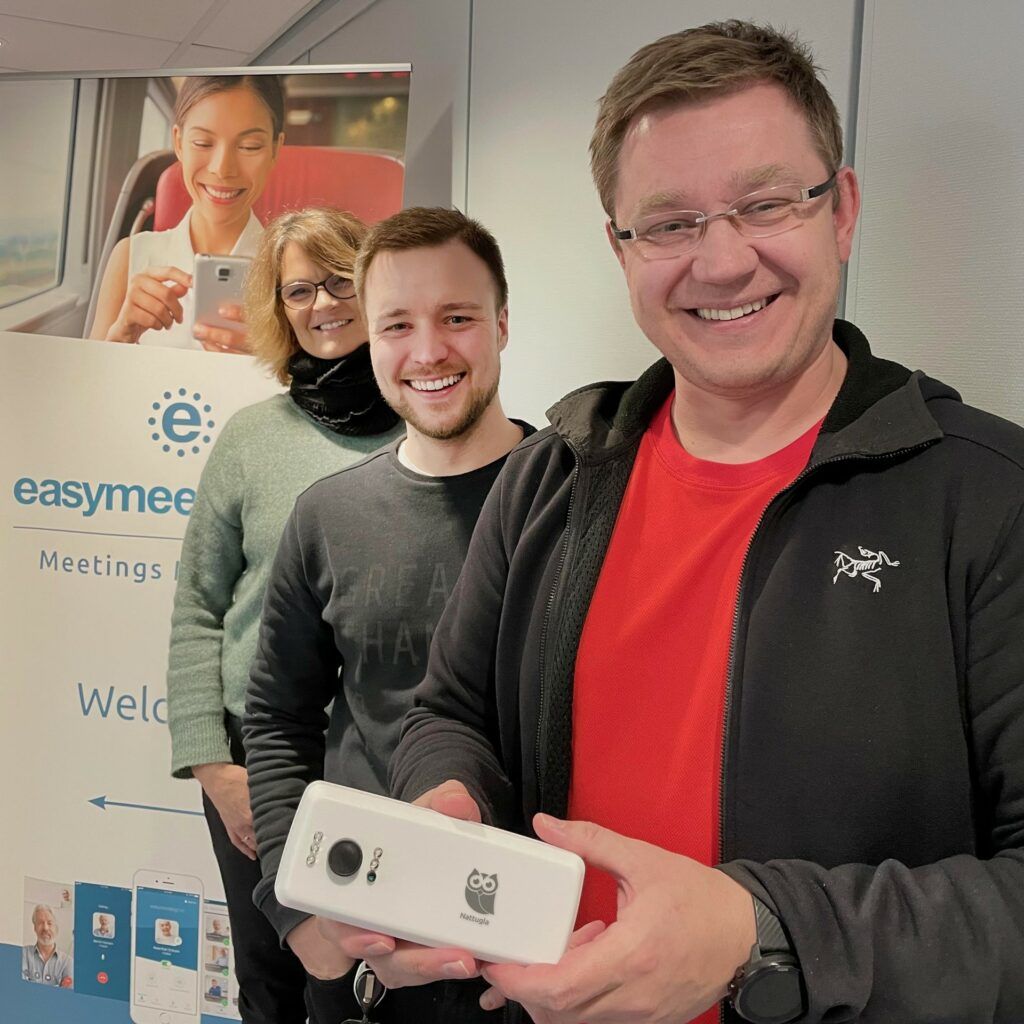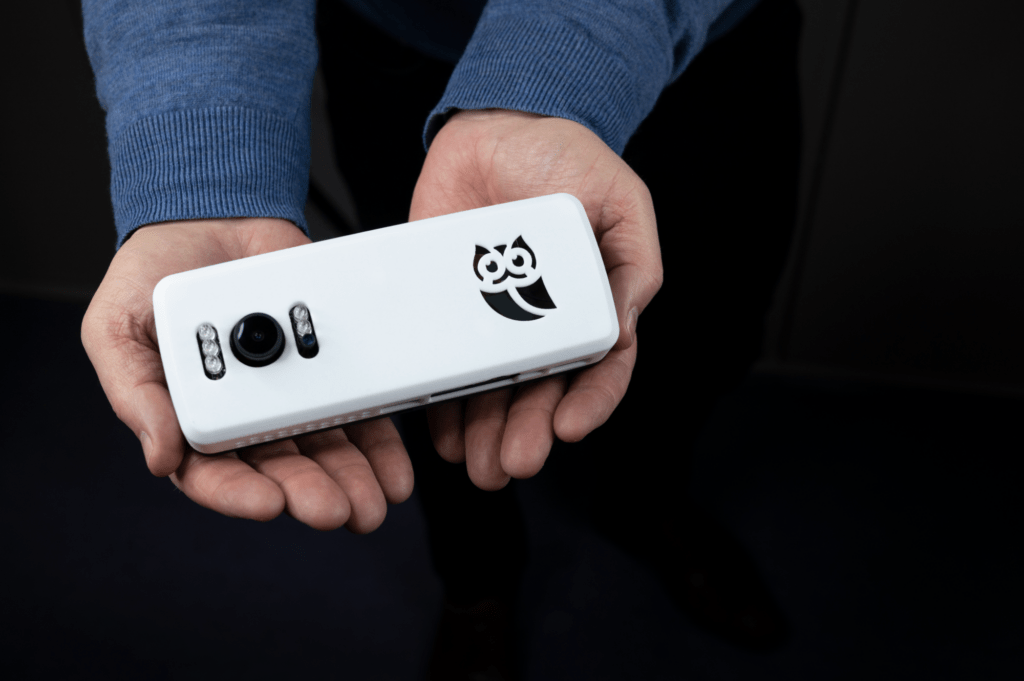Society has been greatly affected by the fact that we have not had the opportunity to give each other a good hug. Physical contact can simply be dangerous, and right now this is where we stand:
The corona pandemic is affecting our entire everyday life. We who are not directly affected may think primarily of the everyday consequences, whether we are quarantined, forced to work from a home office or experience that our own freedom of movement has been greatly reduced. When we look up, we will see changes that can be even more extensive. We can become aware of how we communicate, which we have not been so aware of before. Some forms of body contact have a greater significance than the proximity and the touch itself.
"We can become aware of how we communicate, which we were not previously so aware of"
Hans Johan Tofteng
The handshake illustrates commitment more than anything else.
Oh stroke someone over the cheek, signals care.
And nothing signals love stronger than the heat the clamp, although most would probably argue that for example kissed is a more intimate form of body contact.
Today, as a result of the threat of infection, we are cut off from all direct contact, but this should of course still not deprive us of the ability to show - or receive - care.
We probably show more concern for each other today than we did before the pandemic "hit" us. When we can not meet, it becomes even more important to call each other. When we can not show care in the form of actions, we must at least be able to do so in words. We'll call more. The words "love you, Grandma" may mean even more today than a few months ago, when Grandma first and foremost expected a visit - even though she may not have said so directly.
"When we can not show care in the form of actions, we must at least be able to do so in words"
Hans Johan Tofteng
We have several video calls, such as Facetime, Skype, Easymeeting, etc. The volume of video calls has increased so much that the streaming service Netflix has decided to reduce the picture quality of its movies and series for a period, to reduce the load on the Internet. That the need for video calls is increasing is not at all unnatural when we replace physical meetings. Many people have opened their eyes to newer technology, and the traditional phone has become a bad alternative for many. A large part of our communication is non-verbal, and is about body language, eye contact and means a telephone conversation is not able to convey.
We are in a time where we must define a new form of care in a broad sense, and this will especially include the care we as a large society provide to those who receive home-based health services. Tablets and video solutions will be a natural tool in this offer - corona or not - and contact between home and specialist health services will in many cases take place in this way.
"We are in danger of unreasonably polarizing the whole debate, because we have become accustomed to referring to 'nursing and care' as one concept, and not two different tasks that are equally important."
Hans Johan Tofteng
There will hardly be a shortage of critics of the development, whether we fear a future where the care tasks are completely professionalized, and larger parts of the care are taken over by heartless robots and cold, technical installations. Or vice versa: That care is completely privatized, and that almost all responsibility for providing care to our oldest ports falls into the lap of family and relatives, as was the reality in the old natural households. We are in danger of unreasonably polarizing the whole debate, because we have become accustomed to referring to "nursing and care" as one concept, and not two different tasks that are equally important. Video communication solutions can help us clean up this.
Care must be able to be performed by professional health workers, and of course they must perform this in a caring manner.
Care should be able to be performed by family, relatives and friends - who are characterized by love and the ability to care.
Of course, a tablet and a camera can never be a good replacement for the direct contact. Will physical presence be a realistic alternative, when the number of patients will increase drastically as a result of the aging wave, and we may in the future risk more cases where the risk of infection limits the possibility of physical contact?
"One group in particular appears to be completely forgotten after the pandemic hit us: the lonely elderly."
Hans Johan Tofteng
Should we simply put aside the discussion of what is the best alternative in an ideal world? Should we rather see which solutions give the specialist health service the capacity to provide help to the patients who need it most?
In a situation where a lot of attention is focused on a specific crisis, and where "job number one" is about limiting infection and death, other challenges may appear invisible. One group in particular appears to be completely forgotten after the pandemic hit us: the lonely elderly.
The lonely elderly can be extra vulnerable now. The elderly are in the risk group for infection, which means that they should be shielded from contact with others. As a loner, the need for contact is even greater than in many others. They have few or no acquaintances of the same age who are still alive and who live in the immediate vicinity, and if they have a family, they may be in another part of the country.
For the lonely elderly, direct contact in the form of frequent physical visits is not a real alternative. For these, video calls are so obvious that it should almost be a public responsibility to facilitate this. Everyone deserves to hear the simple but incredibly important words:
"Oh love you, Grandma!"
